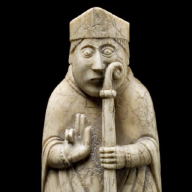近日的社會事件令筆者想起教宗良十三世於1891年頒布的《新事物》( Rerum Novarum) 通諭。
雖然通諭的內容的主題是說工人和錢,但也有些汲及土地的段落。

5. It is surely undeniable that, when a man engages in remunerative labor, the impelling reason and motive of his work is to obtain property, and thereafter to hold it as his very own. If one man hires out to another his strength or skill, he does so for the purpose of receiving in return what is necessary for the satisfaction of his needs; he therefore expressly intends to acquire a right full and real, not only to the remuneration, but also to the disposal of such remuneration, just as he pleases. Thus, if he lives sparingly, saves money, and, for greater security, invests his savings in land, the land, in such case, is only his wages under another form; and, consequently, a working man’s little estate thus purchased should be as completely at his full disposal as are the wages he receives for his labor. But it is precisely in such power of disposal that ownership obtains, whether the property consist of land or chattels. Socialists, therefore, by endeavoring to transfer the possessions of individuals to the community at large, strike at the interests of every wage-earner, since they would deprive him of the liberty of disposing of his wages, and thereby of all hope and possibility of increasing his resources and of bettering his condition in life.
教宗提到,如果一個工人如果辛勞工作、儲蓄、並為更好的生活保障,將他的儲蓄投資在土地上,這樣的話,土地是他薪酬的另一種形式。因為教宗批評,社會主義者1 要求將個人的財產轉移到公用,是威脅着所有工作人口2 的利益,因為他們使他失去了使用自己薪金的自由,同時也奪取了他增加資源及改善生活狀況的一切希望及可能性。
筆者在十多年前聽方濟會的 Father Lionel 說他在聖地的生活,他常常強調一點:「有土地就有自由」。尤其在聖地,有土地就有自由做自己想做的東西,就安全,就有人,就有話事權。
因此,大陸、越南以及其他不少野蠻政權的那一種「發展就是硬道理」的態度,就是把個人的自由及財物擁有權放在「公家」之後。但這卻是首先直接傷害了個人的權益,在未見效果之前就先行相反了這「硬道理」所聲稱的目的。這樣倒頭來,人的尊嚴及自主性受損了,甚麼利益也不能補償了這般傷害。
8. The fact that God has given the earth for the use and enjoyment of the whole human race can in no way be a bar to the owning of private property. For God has granted the earth to mankind in general, not in the sense that all without distinction can deal with it as they like, but rather that no part of it was assigned to any one in particular, and that the limits of private possession have been left to be fixed by man’s own industry, and by the laws of individual races. Moreover, the earth, even though apportioned among private owners, ceases not thereby to minister to the needs of all, inasmuch as there is not one who does not sustain life from what the land produces. Those who do not possess the soil contribute their labor; hence, it may truly be said that all human subsistence is derived either from labor on one’s own land, or from some toil, some calling, which is paid for either in the produce of the land itself, or in that which is exchanged for what the land brings forth.
9. Here, again, we have further proof that private ownership is in accordance with the law of nature. Truly, that which is required for the preservation of life, and for life’s well-being, is produced in great abundance from the soil, but not until man has brought it into cultivation and expended upon it his solicitude and skill. Now, when man thus turns the activity of his mind and the strength of his body toward procuring the fruits of nature, by such act he makes his own that portion of nature’s field which he cultivates - that portion on which he leaves, as it were, the impress of his personality; and it cannot but be just that he should possess that portion as his very own, and have a right to hold it without any one being justified in violating that right.
10. So strong and convincing are these arguments that it seems amazing that some should now be setting up anew certain obsolete opinions in opposition to what is here laid down. They assert that it is right for private persons to have the use of the soil and its various fruits, but that it is unjust for any one to possess outright either the land on which he has built or the estate which he has brought under cultivation. But those who deny these rights do not perceive that they are defrauding man of what his own labor has produced. For the soil which is tilled and cultivated with toil and skill utterly changes its condition; it was wild before, now it is fruitful; was barren, but now brings forth in abundance. That which has thus altered and improved the land becomes so truly part of itself as to be in great measure indistinguishable and inseparable from it. Is it just that the fruit of a man’s own sweat and labor should be possessed and enjoyed by any one else? As effects follow their cause, so is it just and right that the results of labor should belong to those who have bestowed their labor.
土地和人的關係,由良教宗一日多年前的歐洲,到今日的遠東,有不少不同之處。但教宗所列出的原則,有多少我們還能夠從中學習?
32. By the State we here understand, not the particular form of government prevailing in this or that nation, but the State as rightly apprehended; that is to say, any government conformable in its institutions to right reason and natural law, and to those dictates of the divine wisdom which we have expounded in the encyclical On the Christian Constitution of the State. The foremost duty, therefore, of the rulers of the State should be to make sure that the laws and institutions, the general character and administration of the commonwealth, shall be such as of themselves to realize public well-being and private prosperity. This is the proper scope of wise statesmanship and is the work of the rulers. Now a State chiefly prospers and thrives through moral rule, well-regulated family life, respect for religion and justice, the moderation and fair imposing of public taxes, the progress of the arts and of trade, the abundant yield of the land-through everything, in fact, which makes the citizens better and happier. Hereby, then, it lies in the power of a ruler to benefit every class in the State, and amongst the rest to promote to the utmost the interests of the poor; and this in virtue of his office, and without being open to suspicion of undue interference - since it is the province of the commonwealth to serve the common good. And the more that is done for the benefit of the working classes by the general laws of the country, the less need will there be to seek for special means to relieve them.
以上一節,良教宗實在是字字珠璣。他解釋,所有按正確理智和自然律、以及按天主啟示的智慧所管治的國家,首要的任務是要確保法律及架構,國家的普遍概況及行政,都是要以公共的益處及個人財產的實現為優先。「這才是有智慧的管治及統治者的工作。」
他繼續說道,一個國家要令個民生活改善及快樂,必須透過以下各方面的進步:道德規律、良好的家庭生活、尊重宗教及公義、中庸及恰當的公共稅收、藝術及貿易的發展、由工地出產的豐厚出產。而一個統治者必須顧及國家中所有階級的益處,當中以窮人的利益為最優先。
有趣的是:良教宗將道德、家庭生活、宗教及公義,放在公共政策之前。不是因為公共政策不重要,而是當社會缺乏道德、家庭生活、宗教及公義,不可能有良好的公共政策。
因此,聖德蘭修女為讓修女們有能力照顧窮人,要她們每天朝拜聖體。同樣地,花地瑪聖母3 呼籲的,首先是個人的悔改、每天玫瑰經祈禱。
要改變世界,無是政治或文化,首要的是個人的聖化。
46. If a workman’s wages be sufficient to enable him comfortably to support himself, his wife, and his children, he will find it easy, if he be a sensible man, to practice thrift, and he will not fail, by cutting down expenses, to put by some little savings and thus secure a modest source of income. Nature itself would urge him to this. We have seen that this great labor question cannot be solved save by assuming as a principle that private ownership must be held sacred and inviolable. The law, therefore, should favor ownership, and its policy should be to induce as many as possible of the people to become owners.
47. Many excellent results will follow from this; and, first of all, property will certainly become more equitably divided. For, the result of civil change and revolution has been to divide cities into two classes separated by a wide chasm. On the one side there is the party which holds power because it holds wealth; which has in its grasp the whole of labor and trade; which manipulates for its own benefit and its own purposes all the sources of supply, and which is not without influence even in the administration of the commonwealth. On the other side there is the needy and powerless multitude, sick and sore in spirit and ever ready for disturbance. If working people can be encouraged to look forward to obtaining a share in the land, the consequence will be that the gulf between vast wealth and sheer poverty will be bridged over, and the respective classes will be brought nearer to one another. A further consequence will result in the great abundance of the fruits of the earth. Men always work harder and more readily when they work on that which belongs to them; nay, they learn to love the very soil that yields in response to the labor of their hands, not only food to eat, but an abundance of good things for themselves and those that are dear to them. That such a spirit of willing labor would add to the produce of the earth and to the wealth of the community is self evident. And a third advantage would spring from this: men would cling to the country in which they were born, for no one would exchange his country for a foreign land if his own afforded him the means of living a decent and happy life. These three important benefits, however, can be reckoned on only provided that a man’s means be not drained and exhausted by excessive taxation. The right to possess private property is derived from nature, not from man; and the State has the right to control its use in the interests of the public good alone, but by no means to absorb it altogether. The State would therefore be unjust and cruel if under the name of taxation it were to deprive the private owner of more than is fair.
良教宗雖然贊成擁有個人財物,但如果看他的解釋,卻是和現代社會鼓吹的用盡方法去賺取最多金錢的觀念不同。他說的是,人工要讓人能夠養妻活兒,讓他有一個舒適的生活、不必削減生活費之餘,還能有些許積蓄。絕對不是讓每個人都成為「月球人」4 的那種。
良教宗解釋能夠讓各人都擁有合理的財產及回報,能使社會各階層的人的隔閡消除、能夠使土地及國家的出產增加、以及讓人愛護自己的國土。
良教宗在對抗社會主義的時刻,提出了另一種達致一個和諧社會的方式。這種方式也和現今的資本主義社會不甚相同,當然更加相反「發展就是硬道理」這種將「人」當作可放棄資源的想法。

信仰、人、勞動、土地,本身就一環扣一扣。但沒有信仰及公義,就如原祖父母墮落後,人被勞役,人和土地的關係亦破壞了。唯有回到信仰,讓基督的訓導回到人心,一切才能修和。
在不義的世界前,無論是古羅馬的殘暴政權,還是現代的不義,信友的責任不一。但卻有一定的共通點:追求個人的聖德。引用 St. Thomas More 的話說:
I die the king’s faithful servant, but God’s first.
我作為國王的忠信僕人而死,但首先屬天主的。
-
教宗在這裏的意思是指馬克思那一種最「古典」的社會主義
-
更好稱作「打工仔」
3. 近年很多人將她和不少地方的共產黨倒台扯上關係。筆者覺得這屬過份解讀。要說的話,花地瑪聖母擊倒的,不是單單是共產政權,而是一切不公義之事。
4. 「月球人」在香港解作月賺一百萬港元的人。

